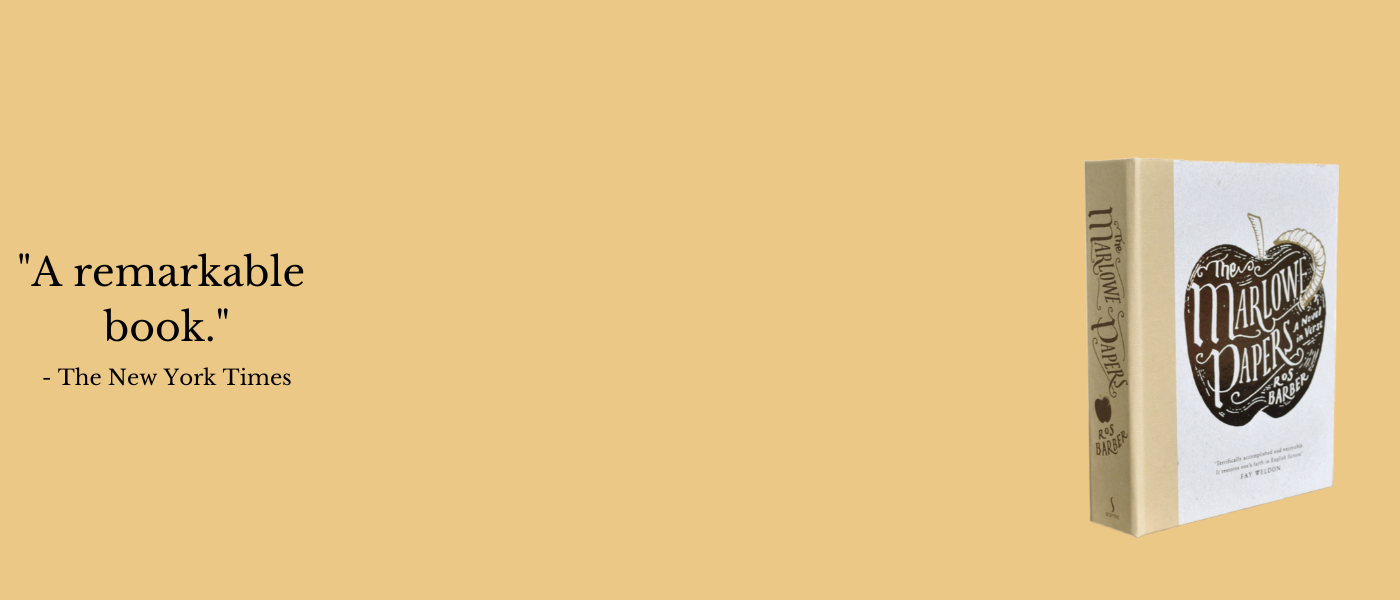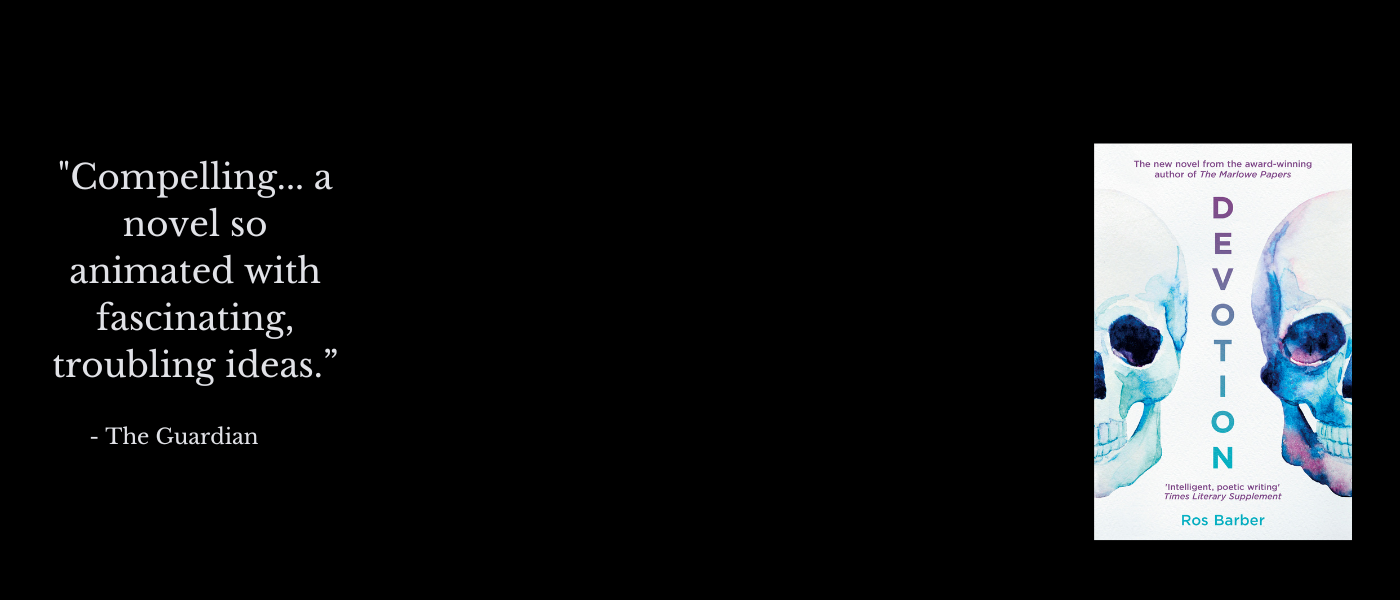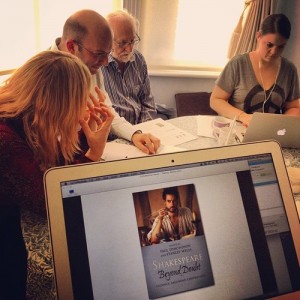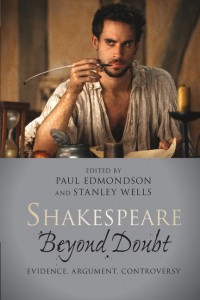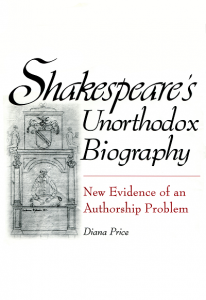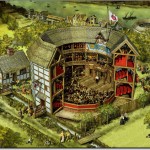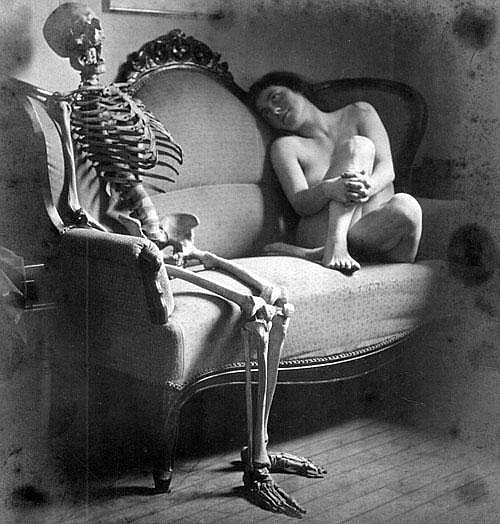‘Proving Shakespeare’ Webinar, Friday 26 April 2013, 6.30-7.30 BST.
Recorded in Stratford-upon-Avon by Misfits Inc for the Shakespeare Birthplace Trust.
Sponsored by Cambridge University Press.
Speakers: Professor Stanley Wells CBE, Dr Paul Edmondson, Dr Ros Barber
Also present: Melissa Leon and AJ Leon of Misfits Inc.
For a printable/downloadable PDF of this transcript, click here
[Slide: Text ‘Proving Shakespeare.‘ Images: Paul Edmondson, Stanley Wells, Ros Barber]
PE: Well it’s a lovely day in Stratford-upon-Avon, my name’s Paul Edmondson of the Shakespeare Birthplace Trust. We’re going to be starting the webinar very soon. About another minute or two. I’m joined by Ros Barber, who’s just published a marvellous book called The Marlowe Papers, and Stanley Wells CBE, our new president for the Shakespeare Birthplace Trust. Okay. So welcome to Proving Shakespeare, this is a webinar about Shakespeare Beyond Doubt, and it’s been sponsored by Cambridge University Press. My name is Paul Edmondson and I’m joined by Stanley Wells and Ros Barber. Thank you very much to Cambridge who published Shakespeare Beyond Doubt last week, and there was a launch for it as part of the Shakespeare Birthplace celebrations here in Stratford.
